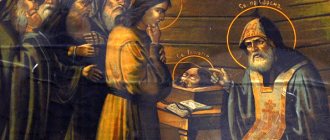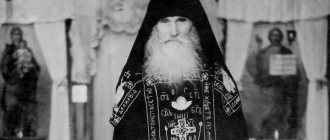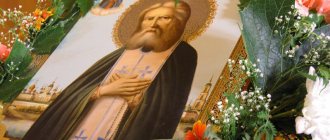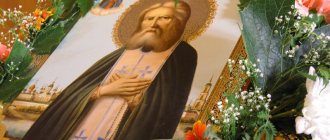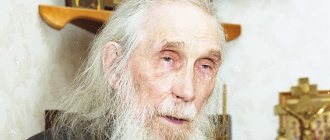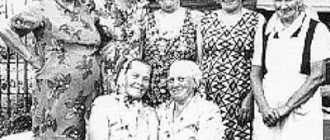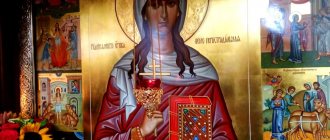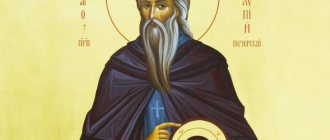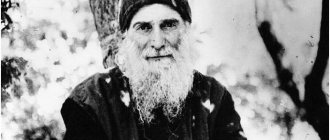| St. Ephraim Sirin |
Ephraim the Syrian
(+ 373), deacon, reverend, one of the great teachers of the Church of the century Memory January 28
Born in Nizibia, in the first years of the century. According to the legend of his Syrian biography, the Monk Ephraim was the son of a pagan priest, who expelled him from his parental home for converting him to Christ.
St. Ephraim was reckless and irritable in his youth, but, having accidentally ended up in prison on charges of stealing sheep, here he received his sight, was worthy to hear the Voice of God and humbled himself. After this, he went to Jacob of Nizibia and studied the Holy Scriptures. Saint James knew the high virtues of his disciple and used them for the benefit of the Church - he instructed him to read sermons, teach children in school, and took him with him to the First Ecumenical Council in Nicaea (325). The Monk Ephraim was in obedience to Saint James for 14 years until his death.
He led an ascetic lifestyle in the mountains until the capture of Nisibia in 363 by the Persians. From that time on, he settled on a mountain near the city of Edessa, taught the people, preached Christianity to the pagans, refusing the rank of bishop offered to him by St. Basil the Great in Caesarea.
He died in 373 in the rank of deacon.
Ephraim himself calls himself a man “unlearned and meaningless”; however, Basil the Great was “amazed” at his learning, as Theodoret put it.
Troparion to Ephraim the Syrian
With the streams of your tears you cultivated the barren land, / and those who from the depths of sighs brought forth fruit for a hundred labors, / and you were a lamp of the universe, / shining miracles, Ephraim, our father, / pray to Christ God for the salvation of our souls.
When and where did Ephraim the Syrian live?
Ephraim the Syrian lived in the 4th century. He was born in 308 and died in 373 at the age of 65.
The Monk Ephraim the Syrian spent his entire life in the territory of Mesopatamia, a state in Central Asia, the territory of which is now occupied by Turkey, Iraq, Iran and Syria.
On all icons, St. Ephraim the Syrian is depicted wearing a Syrian doll.
The most famous story from the life of Ephraim the Syrian
The life of St. Ephraim is not replete with facts. The main memory of him is his creations and texts of prayers, which the Church still preserves.
Perhaps the most famous story about Ephraim the Syrian happened to him in his youth, when he went to prison.
Although Ephraim grew up in a pious family, in his youth he did not lead the most righteous lifestyle. One day he got drunk with one of the peasants, and in the morning he was accused of stealing several sheep.
The Monk Ephraim the Syrian did not steal the sheep - they were dragged away at night by wild animals - but they did not believe him and put him in prison. There he found himself with two other prisoners, who were also imprisoned on false charges.
In prison, three people got into a conversation and it turned out that according to these charges, all three were innocent (Efrem the Syrian did not steal sheep, the other did not commit adultery, the third did not kill), but each, it turns out, committed an act in his life that deserved punishment - just about no one recognized them. For example, some time before, Ephraim the Syrian himself, out of mischief, drove a poor man’s cow into the field - and there it was killed by animals.
Soon the real criminals were found and all three were released. But Ephraim himself was greatly impressed by what happened. It turns out that justice is a human concept, and above it lies God’s providence, which is not always immediately visible. And how varied - and always according to divine truth! - life gets settled.
The Life tells that after this event, Ephraim the Syrian immediately (or soon) decided on a monastic life and became a monk.
Urban ascetic
Saracens (Arabs) attack the Byzantines in Edessa. Miniature from the Madrid Skylitzes of John Skylitzes, 12th century. National Library of Spain, Madrid
We venerate Saint Ephraim as a monk, that is, a monk. But he did not live in a monastery, like most modern monks, nor was he a hermit monk: Ephraim was a member of the community of the so-called sons of the Covenant.
These communities appeared as a response to the desire to fully fulfill the Sermon on the Mount. But can everyone “leave everything” and follow Christ like the apostles? To resolve this contradiction, Syrian Christians divided the commandments into small and great.
Small (moral) commandments, such as “do not lie”, “do not commit adultery”, “do not steal”, can be fulfilled by everyone, including family people, they believed, but the fulfillment of large ones (for example, “leave everything and follow Me”) was taken away upon themselves "sons of the Covenant". The “Sons of the Covenant” took a vow of marital abstinence, did not consume meat and wine, taught psalms and served in church, but did not take a vow of poverty. They did not withdraw from society, as the Egyptian hermits did, but lived in communities in cities and villages, therefore Saint Ephraim addressed his sermons and poetic writings to people living in the bustle of the city.
Ephraim the Syrian and the harlots
Another story that is often told about St. Ephraim.
More than once harlots tried to seduce him, but each time he convinced them to repent with his spirit and words. Each time, he verbally agreed to the harlots’ proposal, but with one condition - that the sin would be committed in the central square of the city.
The women were embarrassed by such a proposal, and the Monk Ephraim the Syrian reproached them, saying that if we are ashamed of people, then how can we not be ashamed of God, who can see everything better than the townspeople on the central streets.
The last years of the saint's earthly journey
Returning from his trip, Ephraim the Syrian intended to indulge in solitary communion with God for the rest of his days. But God decreed otherwise. At that time, Edessa was shaken by a severe famine and the saint, with the power of his exhortation, began to convince the rich not to anger the Almighty, but to show mercy to the poor. The sermon was a success: the rich began to donate funds, which were then distributed among those in need. Another fruit of the saint’s charitable activities was the organization of an almshouse.
After the situation normalized, Ephraim retired to a cave. Soon he fell ill. The news of what had happened spread throughout the local population and prompted crowds of people to flock to him, wanting to receive a final farewell. Before his death, Ephraim wrote a will in which, among other things, he commanded not to give him a grand farewell, professed loyalty to God and asked for posthumous prayers. Soon the saint’s heart stopped, and he peacefully departed to the Lord. It is believed that this happened in 372 or 373.
Ephraim the Syrian, life briefly
The life of the saint itself contains almost no facts about him.
It is only known that he was born in the city of Nizibia and spent in it and its environs until he was almost forty years old. After Nizibia was conquered by the Persians, the Monk Ephraim moved to the city of Edessa, where he later died.
For many years in Nizibia, the Monk Ephraim was a novice under the ascetic James of Nizibia - who in turn was a disciple of Saint Anthony the Great: the same Egyptian elder who founded monasticism in the Christian tradition.
Here, perhaps, are all the facts.
(It may also be noted that tradition has preserved the memory of the absolute gentleness of St. Ephraim. This is a real feat, considering that in his youth he was distinguished by a hot-tempered and angry character, but in monasticism he completely overcame these passions in himself.)
Orthodox Life
A brief overview of the life and written heritage of the Syrian ascetic from Archpriest Vladimir Dolgikh.
On February 10, the Orthodox Church honors the day of memory of St. Ephraim the Syrian. It will not be an exaggeration if we say that this ascetic is one of the most outstanding Syrian Christian writers. Many of us have heard his name, but what do we really know about him, what have we read from his works? It seems to me that in most cases the answer will be quite short.
Thanks to the Internet, today we can find a huge amount of information; patristic works are more accessible to a wide range of readers than ever before, but one can get lost in their abundance. One of the advantages of education is that it helps to systematize the entire flow of information and facts, to build it into some kind of holistic knowledge. Unfortunately, spiritual education is now inaccessible to most lay people, so anyone who undertakes self-study simply “drowns” in the available number of books and manuals. No matter how much we would like to, it will not be possible to radically change this situation. These thoughts prompted me to write the following article.
Instead of taking on any isolated teaching in the works of St. Ephraim or consider a separate work of his, I would like to take this opportunity to make a brief overview of both his life and his written heritage. Perhaps this will help someone fill a small gap in their knowledge of patrolology or encourage a deeper study of the works of this Syrian ascetic.
So, Rev. Ephraim the Syrian is one of the Church Fathers who lived and worked in the 4th century. Syrian literature reached its greatest flourishing under him, because he constantly resorted to poetic speech, composed hymns, and it was thanks to his influence that this genre spread among the Byzantines, which brought the saint fairly quick fame among the Greek-speaking population. On the authority of the works of St. Ephraim speaks the words of the blessed one well. Hieronymus of Stridon. In his book “On Famous Men,” he literally writes the following: “After the reading of Scripture, in some churches his (that is, St. Ephraim’s) writings were publicly read. I read his book on the Holy Spirit in Greek, and even from the translation, I discerned an extremely subtle mind.” But about a century later, the Byzantine historian Hermios Sozomen will leave the following note: “I think that Ephraim the Syrian surpassed everyone in glory and greatly adorned the Universal Church. And in harmony and splendor of speech, and liveliness, and wisdom of judgment, he surpasses all the famous Greek writers.”
Life of St. Ephraim the Syrian is not difficult to find on the Internet, but if you approach this issue scrupulously, you must admit that there are practically no absolutely reliable sources of information about his life, with the exception of some facts that can be extracted from his own writings. Take, for example, the “Testament” of the reverend. It has a historical core, but there are two editions of this document (Syrian and Greek proper), which differ in the information provided. Someone may refer to such an ancient written monument as the “Life” of Ephraim, attributed to his student Simeon of Samosata, but there are already three editions of this document, largely distorted by legends and some conjectures. All this makes it very difficult to identify a historically accurate core of the narrative. It must be said that the information provided by the above-mentioned blessed man deserves some confidence. Jerome of Stridon, as well as “Lavsaik” or “The Narrative of the Life of the Holy and Blessed Fathers” by Palladius of Elenopolis.
What do we know about St. Ephraim the Syrian? He was born around 306 in Nizibin - an ancient city and fortress on the border of modern Turkey and Syria, closer to Iraq. Regarding the saint’s parents, information varies: some sources claim that his father was a Christian, others that he was a pagan priest. Ephraim receives baptism at a fairly mature age - between 18 and 28 years. It can be said with certainty that he was a deacon and received ordination from his friend, the saint. James of Nizibia. As for the priestly rank, we do not find reliable information here.
At that time, Nizibin was greatly disturbed by the raids of the Persians, and Ephraim himself distinguished himself with courage in repelling them. However, when Emperor Jovian decided to surrender the city to the enemies, the future saint fled to Edessa where he founded a school. Ephraim the Syrian was an ascetic and led a monastic lifestyle, as evidenced by his own words left in the “Testament”: “Ephraim did not own anything, he had neither a staff nor a scrip. Bury me in my tunic and my doll. Blessed is the city in which you live, Edessa, the mother of the wise, who was blessed by the life-giving lips of the Son through His disciple. May this blessing remain in her until the Holy One appears. In all my life I have not done any good deed.”
As for his travel to Egypt, to Caesarea in Cappadocia and participation in the First Ecumenical Council, this information should be discarded as unreliable.
If we open the list of creation of St. Ephraim the Syrian, it must be said that, despite its considerable size, this is not all that this prolific husband wrote. Saint Photius of Constantinople says that the monk composed more than a thousand speeches, most of which were lost. All of Ephraim’s works were written in Syriac, but he most likely did not speak Greek. Translations of the saint's works (Greek, Latin, Armenian) began to be compiled almost immediately after his death.
We see that St. Ephraim devoted a lot of time to interpreting the Holy Scriptures. His exegetical works bear the stamp of the Antiochene tradition, that is, they are distinguished by a sober explanation of the text in accordance with the literal meaning, but he was not alien to the allegorical method. Knowledge of Hebrew contributed to a better understanding of the sacred texts.
A lot of attention from St. Ephraim devoted his time to criticizing contemporary heresies. Yes, holy. Gregory of Nyssa writes that he read the writings of the Syrian ascetic against the Arians, Anomeans, Novatus and Apollinaris of Laodicea. As an ascetic, Ephraim compiled many works of moral content, here, for example, is one thought characteristic of him: “The memory of sins frightens me and I begin to pour out in tears, I am even ready to lose heart, if they had not hastened to strengthen me, half-dead - the robber, the publican, the sinner, the Canaanite woman, or the bleeding Samaritan woman.” He combines repentant tears and contrition for sins with heartfelt tenderness, love and consolation. As a spiritual hymnist, St. Ephraim composed many verses that are still used in worship today.
If we talk about the dogmatic teaching of the Syrian ascetic, then it is quite difficult to identify it. St. Ephraim the Syrian resorts not to philosophical terminology, but to poetry, behind which the dogmas are hidden. He uses the types and symbols of the Old Testament, pointing to their fulfillment in the New Testament. However, this approach does not in the least prevent us from determining that in the presentation of dogmas Ephraim the Syrian is fully consistent with Orthodox dogma.
Some researchers call the monk the “Mariological Teacher.” And indeed, he devotes a lot of time to the importance of the Mother of God in the matter of human salvation. It is interesting that Rev. Ephraim, the Virgin Mary is contrasted with Eve: “Eve gave birth to a murderer, so Mary gave birth to the Giver of Life. She gave birth to the one who shed the blood of his brother, and this gave birth to the One whose blood was shed by His brothers. She saw the one who trembled and was exiled because of the curse of the earth, This is the One who lifted the curse, which was nailed to the tree of the Cross.”
Let us note some more thoughts of St. Ephraim regarding the Sacrament of the Eucharist. He writes about the real presence of Christ in the Gifts: “We touch His Body and Blood, which is the guarantee of our life.” Further, the monk points out that we now eat the Body and Blood of the Savior instead of the fruit of paradise. But the paradise (Eden) lost by Adam itself is still hidden even from the righteous until the moment of the general resurrection. Only there will full contemplation of God come.
As we see, Rev. Ephraim the Syrian, although orthodox, was a rather original writer, and in general an amazing and original teacher and ascetic. We should not neglect reading his works, and even if we are not able to cover them all, at least a little at a time, and it is still worth filling in the gaps.
Archpriest Vladimir Dolgikh
Why is Ephraim the Syrian so revered?
The Monk Ephraim the Syrian is revered by Orthodoxy as the father of the Church.
Holy fathers, or teachers of the Church, are those saints who, through their labors, formulated, founded, or helped establish any aspect of Church life.
See also: who are the holy fathers?
The Monk Ephraim the Syrian left behind a huge number of creations (possibly more than 1000, but many of them have not survived). This includes interpretation of holy scripture, texts of prayers, and sermons.
Reverend Ephraim had the gift of speech and persuasion. His works may not be as systematic in terms of theology as those of some other holy fathers - (Efrem the Syrian is more of a poet) - but in terms of spiritual power, few could and can still compare with him.
Collected works of Ephraim the Syrian.
Prayer of Ephraim the Syrian
Ephraim the Syrian wrote a large number of psalm prayers during his lifetime.
At one time, Saint Theophan the Recluse translated most of them into Russian (the book was published under the title “The Psalter of Ephraim the Syrian”), but his most famous prayer is the Lenten prayer, which is read in the Church during Great Lent - “Lord, Lord of my life...”
We wrote about the prayer of Ephraim the Syrian in detail, read it.
